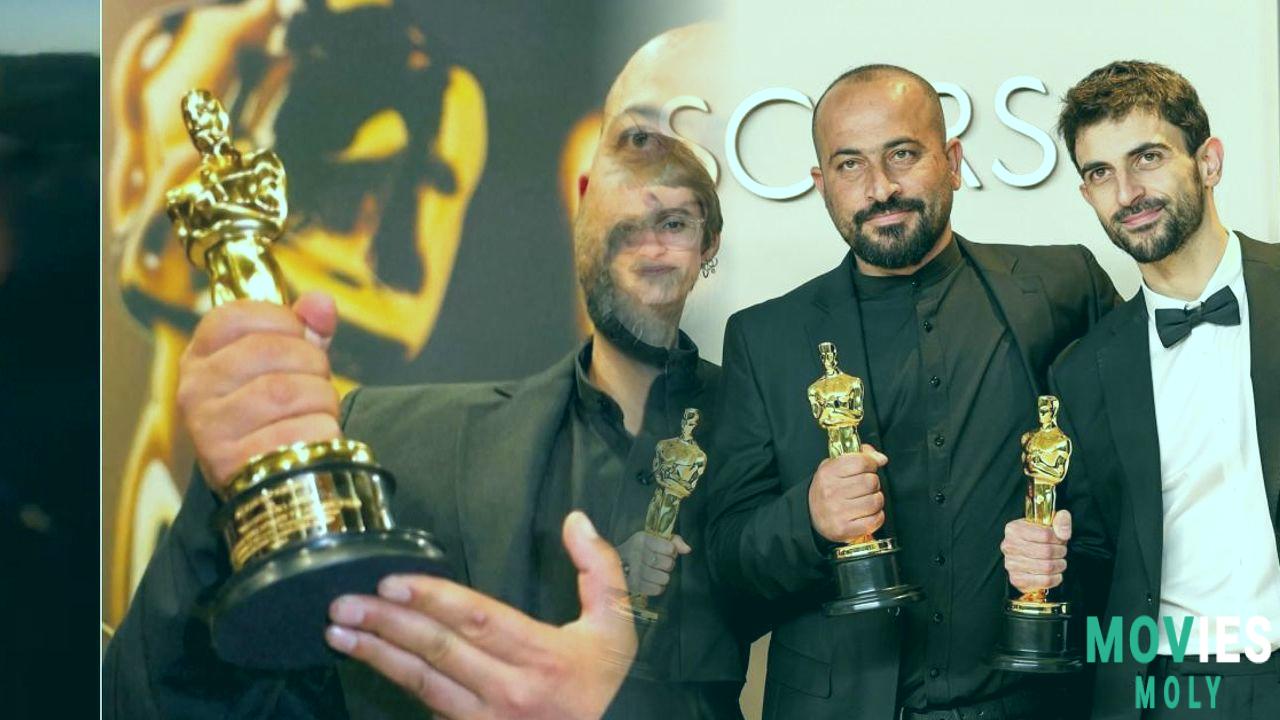Okay folks this story is a tough one but it's important to hear. Just weeks after Palestinian filmmaker Hamdan Ballal celebrated an Oscar win for his documentary "No Other Land" things took a dark and disturbing turn. Ballal was attacked in his West Bank village and then detained by Israeli forces . Let's break down what happened.
Brutal Attack in Susya: Settlers Descend on Village Assault Oscar-Winning Director
Imagine going from the high of winning an Academy Award to facing violence in your own home. That’s what happened to Hamdan Ballal. On Monday night in the village of Susya located in the Masafer Yatta area of the West Bank a group of armed Israeli settlers descended on the Palestinian community. Witnesses say around fifteen masked settlers launched an attack targeting homes and residents.
According to Jewish American activists who were there settlers started throwing stones damaging property and specifically targeting Hamdan Ballal's house. They even destroyed a water tank near his home a crucial resource in this area. Things escalated quickly. Settlers reportedly smashed Ballal’s car with stones and slashed the tires making sure to cause as much damage as possible.
When Israeli soldiers arrived alongside more settlers dressed in military gear instead of stopping the violence witnesses say they chased Hamdan. They handed him over to the army who then arrested him. The scene inside Ballal's home after the attack was reportedly gruesome with bloodstains on the floor where he was injured after being hit on the head.
Director Claims Beatings and Abuse During Detention: "They Knew About the Oscar"

After being detained Ballal described a harrowing experience at the hands of Israeli soldiers. He alleges that he was heavily beaten not just by settlers during the initial attack but also while in custody. Ballal claims one settler kicked him in the head "like a football" during the assault.
Once in detention Ballal says he was blindfolded for over 20 hours forced to sit on the floor in cold conditions with an air conditioner blasting. He recounts soldiers kicking punching and hitting him with sticks during guard shifts. Disturbingly Ballal who doesn't speak Hebrew said he overheard the soldiers mentioning his name and the word "Oscar." He believes this indicates he was targeted specifically because of his recent Oscar win and the attention it brought to the Palestinian situation.
While the Israeli military hasn't responded to these specific allegations of abuse they stated that there was a "violent confrontation" and that Palestinians threw rocks at Israeli citizens. They claim to have arrested three Palestinians for throwing rocks and one Israeli civilian involved in the clash. Ballal denies throwing stones himself.
"No Other Land" Backlash? Filmmakers Suggest Attack Could Be Retaliation for Oscar Win

Basel Adra another co-director of "No Other Land" believes the increased settler violence and this attack on Ballal could be linked to the film's international success. The documentary focuses on the struggles of Palestinian villages in the West Bank under Israeli occupation and has clearly struck a nerve.
Adra who witnessed the attack described the scene as "horrific" with "dozens of settlers together with Israeli soldiers" threatening Palestinians with weapons. He claims the police were present from the start but did not intervene to stop the settlers while they attacked Palestinian homes.
Yuval Abraham the Israeli co-director of the film posted on social media describing the attack as a "lynching" and stating Ballal sustained head and stomach injuries. He alleged that soldiers removed Ballal from an ambulance and took him away. Israel's culture minister has even called the Oscar win for the documentary "a sad moment for the world of cinema" showing the level of official disapproval the film has faced in Israel.
Longstanding Tensions in Masafer Yatta: A Region Under Pressure
The village of Susya and the Masafer Yatta region are at the heart of "No Other Land". This area has been a focal point of the Israeli-Palestinian conflict for decades. The Israeli military designated Masafer Yatta as a live-fire training zone in the 1980s and has been attempting to displace the Palestinian residents many of whom are Bedouin Arabs.
Around 1000 Palestinians live in Masafer Yatta and face constant pressure from the Israeli military and settlers. Demolitions of homes water tanks and olive orchards are common. Settler outposts have sprung up around the area and Palestinian residents and human rights groups say Israeli forces often side with the settlers in disputes or attacks.
The current war in Gaza has intensified the situation in the West Bank. Violence has surged with increased Israeli military operations and a rise in settler attacks against Palestinians. This latest incident involving Hamdan Ballal is another example of the escalating tensions and the dangers faced by Palestinians living under occupation.
Key Facts About the Attack on Hamdan Ballal:
- Palestinian filmmaker Hamdan Ballal co-director of Oscar-winning "No Other Land" was attacked by Israeli settlers.
- Attack took place in Susya village Masafer Yatta West Bank.
- Settlers threw stones damaged property and assaulted Ballal.
- Israeli soldiers present arrested Ballal instead of protecting him.
- Ballal alleges he was beaten by settlers and abused during detention by soldiers who referenced his Oscar win.
- Co-directors suggest attack may be retaliation for the film's success and focus on settler violence.
- Settler violence in the West Bank has increased since the Gaza war began.
A Filmmaker's Fight: Will Justice Be Served for Hamdan Ballal?
Hamdan Ballal has been released from detention and is receiving medical treatment but the wider implications of this incident are deeply concerning. It raises serious questions about the safety of Palestinian activists and filmmakers who speak out about the occupation. Will there be accountability for the settlers who attacked Ballal and his village? Will the Israeli soldiers who allegedly abused him be held responsible? The world is watching to see how this situation unfolds and whether justice will be served for an Oscar-winning filmmaker who dared to tell his story.

